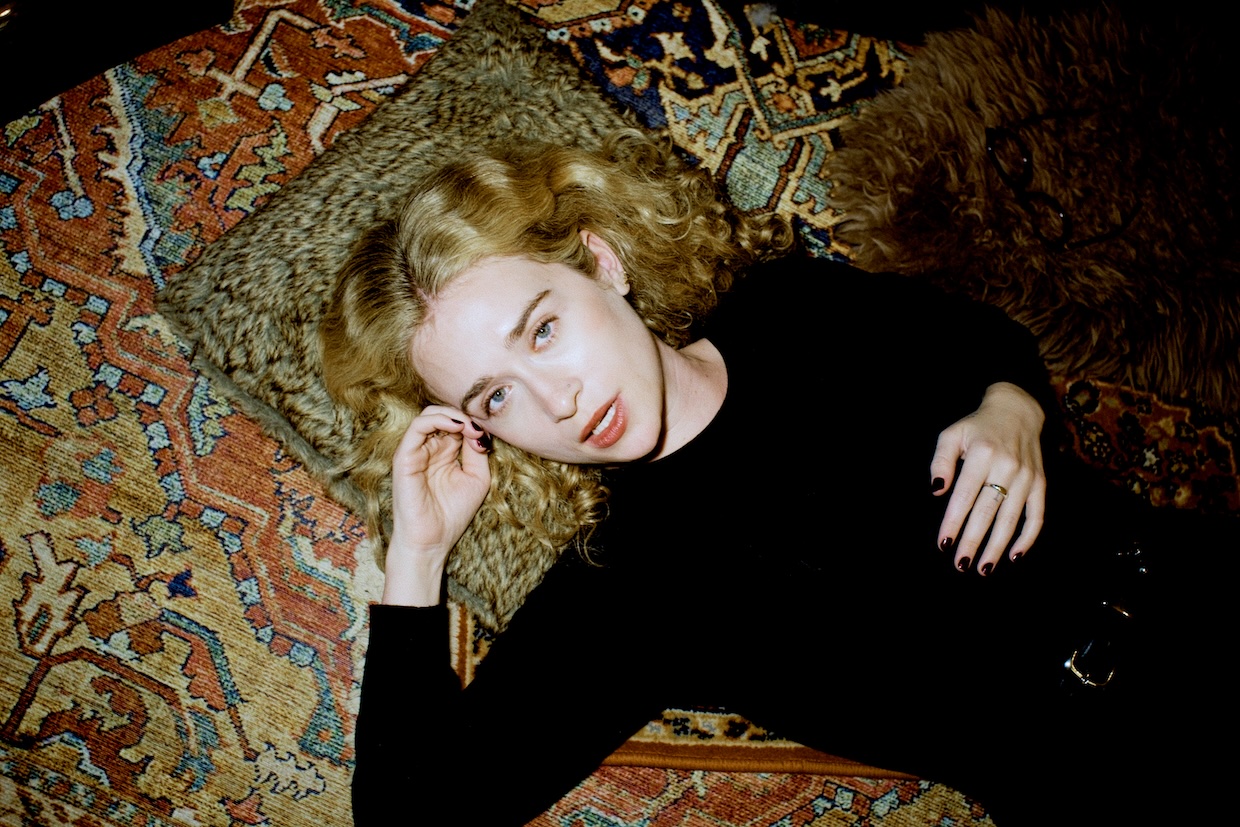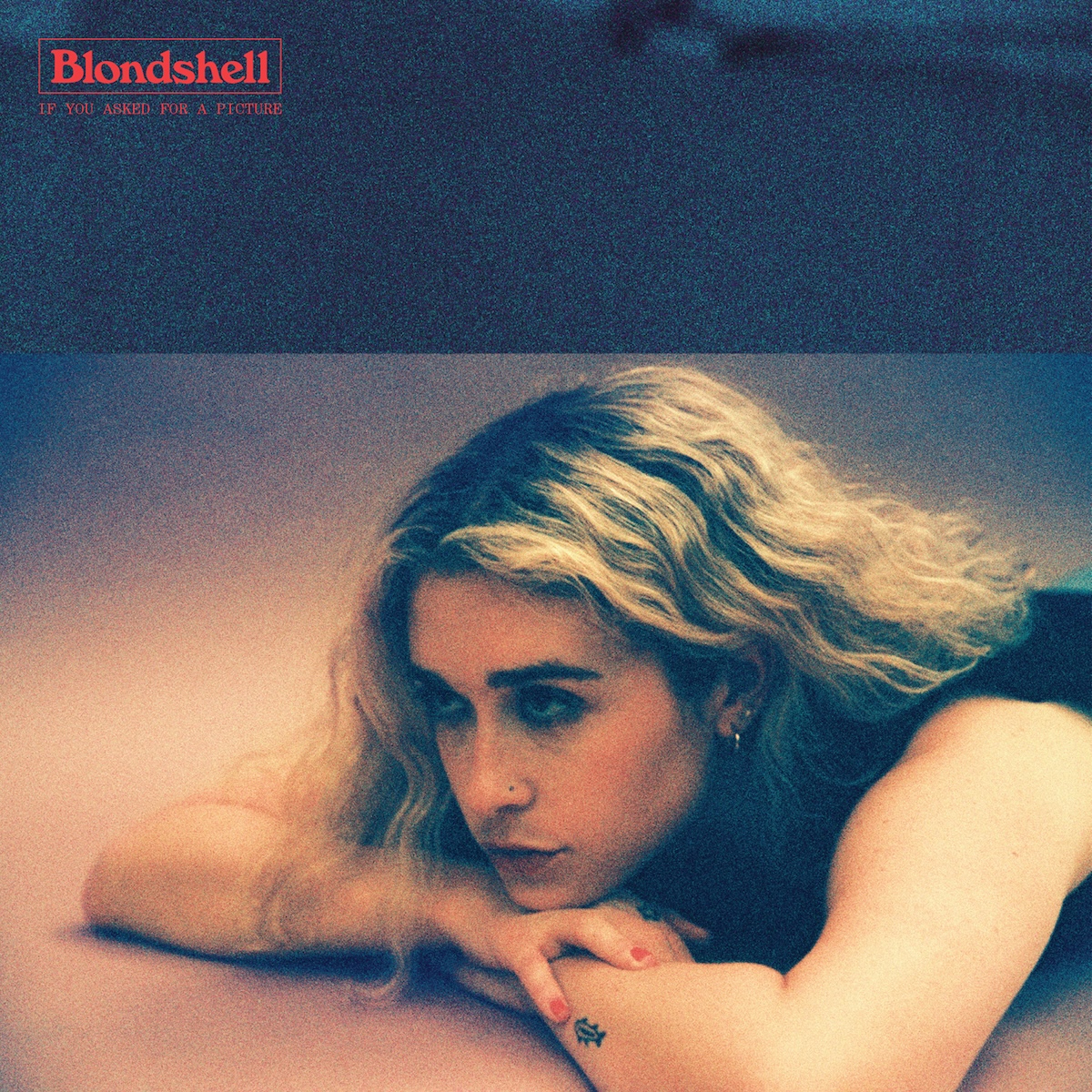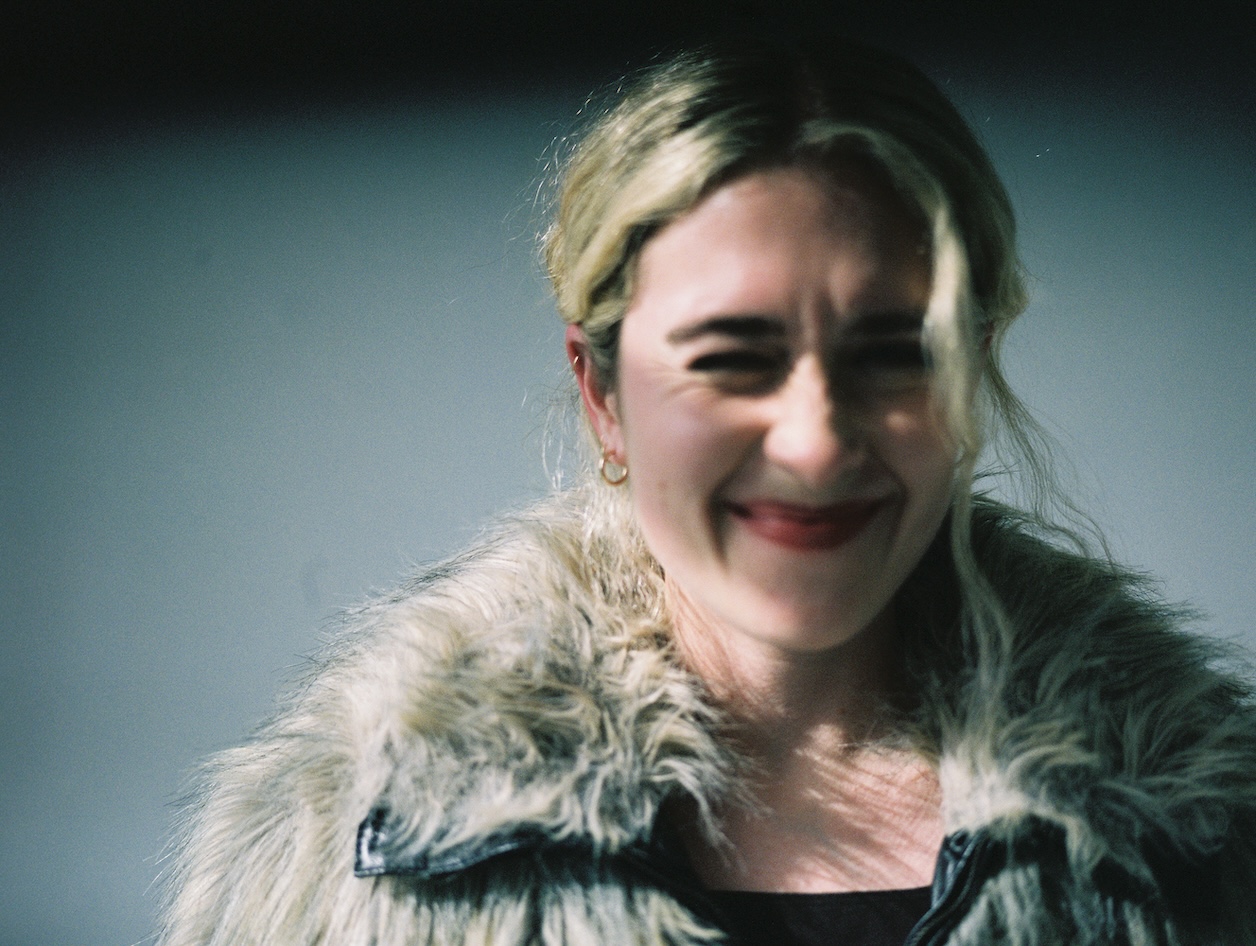Sabrina Teitelbaum, a.k.a. indie rock musician Blondshell, is a big Replacements fan. From her home in Los Angeles, she tells me that the song “Androgynous”—from the band’s seminal 1984 album Let It Be—was a really important song for her growing up. “I remember hearing it for the first time…especially as a queer kid…it was such a big deal for me; the lyrics in that song and his [Paul Westerberg’s] voice and it just feels so stripped back with the piano. There’s kind of a special place for that song.”
More from Spin:
- R.E.M. Revisit ‘Radio Free Europe’ For New Benefit EP
- 5 Albums I Can’t Live Without: Andy Bell of Erasure
- Pet Symmetry Goes ‘Big’

As we chat, Los Angeles is being hit by a massive rainstorm. Though she’s lived there since 2015, Teitelbaum (who’s originally from New York) is still surprised by locals’ reaction to rain. “Honestly, everybody just goes crazy when it’s raining here,” she says, her blonde hair pulled back into a bun, a white T-shirt sticking out from underneath her faded black hoodie. “Nobody knows how to drive. I’m from the East Coast, so it’s sort of a surprise to me that it feels like the city stops functioning when it rains.”
I discover we have two things in common: We’re both Jewish and fraternal twins; she has a brother (among three other siblings) and I have a sister. She says she enjoyed having someone her age, living in the same house that she could experience the ups and downs of childhood with; a “built-in best friend.”
Mainly raised by her father, who took her to see the Rolling Stones, Bob Dylan, and other concerts, Teitelbaum didn’t have much of a relationship with her mother, who died in 2018.
Growing up, Teitelbaum loved classic rock and the “super-thick vocal harmonies” of Queen and ABBA. When Adele’s 19 came out in 2008, the then-12-year-old became obsessed with the British pop-soul singer, learning to play her songs on the piano and honing her voice to emulate what she heard on the record. Through her love of Adele, she discovered Amy Winehouse and other female powerhouse vocalists, eventually embracing grunge acts Nirvana, Hole, and others.

Originally from New York City, Teitelbaum moved to Los Angeles after high school to attend the USC Thornton School of Music, majoring in songwriting. She dropped out two years later to pursue a pop music career as BAUM, releasing a string of singles such as “Hot Water,” “This Body,” and “Fuckboy,” and the EP, Ungodly. But by 2020, she grew tired of the pop direction her music was taking and abandoned her BAUM moniker. “There was just a lot of time in COVID where I was thinking about what I wanted from putting music out and what kind of albums I wanted to make,” she says. “And I just felt like I really outgrew that project.”
While in lockdown, Teitelbaum began writing what would become her self-titled debut album under her new moniker Blondshell. The album, which was released in 2023, is less pop and more rock, mirroring much more closely to the music she grew up with. The subject matter, too, was much more personal, tackling topics such as addiction and toxic relationships.
Teitelbaum is someone who doesn’t go into specifics about her personal life. Rather, she writes about them in her music. That may be why Blondshell resonated with so many people; her song “Joiner” even landing on President Obama’s “Favorite Songs of 2023” list.

“I’m sort of private about a lot of things in my life, like the stuff that’s going on, I sort of keep inside,” she says. “I don’t talk about that stuff with strangers or even people I know well. So songs are sort of my place to talk about everything that’s deeply personal.”
From 2023 to 2024, Teitelbaum played more than 150 shows. She toured with Liz Phair, headlined her own sold-out show, and played at several high-profile festivals including Governors Ball, Glastonbury, and Lollapalooza.
I ask her which she likes better, performing or songwriting. “They’re sort of incomparable,” she says. “I love writing. Writing happens in the context of my everyday life. A tour requires just a different part of me and you go into a different world for a month or for two months or whatever it is. It’s so exciting and it’s also harder than the writing process, but more rewarding in some ways. I love recording and seeing how the songs change and grow.”
Now, Teitelbaum has released her sophomore album, If You Asked For A Picture.

Borrowing its title from the 1986 poem, “Dogfish,” by writer Mary Oliver, Teitelbaum, like the subject of the poem, grapples with the idea of telling her own story—how much to share, how much to keep to herself. The album, even more than her first, gestures towards a deeper autobiographical story that taps into something painfully universal without being too overt.
While, for the most part, the songs on If You Asked For A Picture are autobiographical in nature, with an overarching theme of the complexity of familial relationships, the stories Teitelbaum reveals are not typically told in the traditional narrative way. The album’s first single, the grunge-soaked “T&A,” however, is different, she tells me. Inspired by the song “Little T&A” on her favorite album growing up, the Rolling Stones’ 1981 classic Tattoo You, there’s a clear chronology of what’s happening—a platonic relationship with a boy that crumbles into something toxic, and the sister who refuses to forget. This narrative process, she says, made the subject matter easier for her to talk about in her music.
“Man” is another standout track on the album. The song explores the adultification of young women, and the way Teitelbaum sings “I got a lot of free rein / and cocaine / and pretty clothes / and shifty goals / but I needed the world from you / the world I needed a lot from you” leaves you wondering if this is something she personally experienced.
“I grew up in this big city and was around people a lot older than me and was treated like I was an adult as a young girl,” she says. “In that kind of position, sometimes you feel like a mouse pretending to be a lion. Like, when you’re in high school, and you’re going out and you’re 18 or 17, and so people see you as an adult because you’re tall enough to look like an adult and you’re wearing clothes that make you look like an adult. But you feel like a little girl inside because you’re still in high school. You’re actually kind of scared in those situations. And I had never written about that before, actually. That was a formative time for me.”
Children from dysfunctional families are often burdened with the unfair assumption that they, too, will continue that same cycle. Her fractured relationship with her often-absent mother, and then losing her for good at a young age, is enough to set the stage for a long road of self-doubt, low confidence, and self-sabotage.
But as Blondshell, Teitelbaum endures. “I think as I’ve gotten a bit older, I’m not chasing crazy experiences for the sake of songs,” she says, as we talk about the“tortured artist” trope. “I think it’s such a tragic thing that there’s this common idea that you have to mess up your life as a songwriter or a writer of any kind; like, you have to chase difficulty to be able to make your songs or write your books or write your poems. I think life just finds you no matter what.”
To see our running list of the top 100 greatest rock stars of all time, click here.



